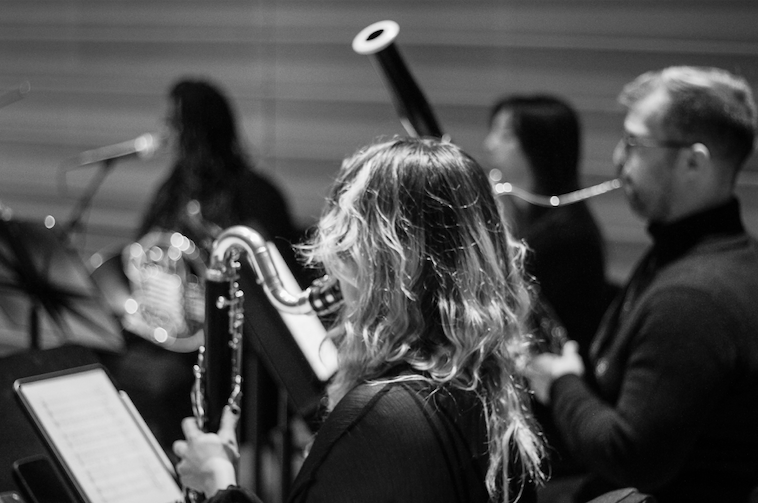Concetta Abbate On the Making Of ‘LAMINARIA’
Credit: Alice Teeple
Can you talk about any specific themes or motifs that run throughout ‘LAMINARIA?'
‘LAMINARIA’ (A Folk Horror Chamber Suite) is a musical depiction of an underwater sea-witch emerging from a kelp forest. The title comes from the Latin word for kelp, a plant that stands on the crux between life and death which is used medicinally to induce labor. The piece explores lived experiences of trauma utilizing an undersea shadow figure as symbolism for the pain and anxiety endured. The piece is composed for chamber orchestra including woodwinds, strings, handmade percussion and voice.
Folk horror is a subgenre of horror that explores the terrifying power of nature and our own isolation in its darkness. Its title references the oral traditions of everyday people (or “common folk”) who seek to understand the uncontrollable elements. The genre frequently references fairytale tropes such as wandering, being lost in the wilderness and encountering unexplainable magic.
Was there any challenge that you encountered while making this album?
The biggest challenge was the size of the ensemble. Coordinating 10 musicians is a logistical feat. There was no conductor for this ensemble. Everything we rehearsed and performed had to be mapped out with cues between the musicians. The piece alternates between composed sections and improvisations so there were many transitional sections that could only smooth out through lots of rehearsal and time spent with the piece. The ensemble also included an atypical instrumentation with three of the instrumentalists doubling as singers.
Have you noticed any particular interpretations or connections that listeners have made with this album?
Many listeners have told me that the music sounds like something they haven't heard before which I take as a huge compliment! I truly believe it's an innovative piece of music! I have heard it compared to tone poems because of its visual-narrative elements embedded into the music as well as its interconnectedness with folktales. Some specific composer comparisons might be Liszt, Edward Grieg and Shostakovich. It also heavily draws influence from medieval chant as well as 90's acoustic punk and grunge.
What sources of inspiration do you draw from when composing? Are there particular artists, genres, or life experiences that influence your work?
My interest in creating this piece came from watching a ton of horror films and listening/observing the soundtracks as well as the foley sound effects.
How do you collaborate with performers and ensembles to bring your compositions to life? How important is communication in these collaborations?
Communication was everything with these collaborators. We had a ton of rehearsal time. There were so many conversations, compromises and decisions that had to be made in interpreting the score that I wrote.
